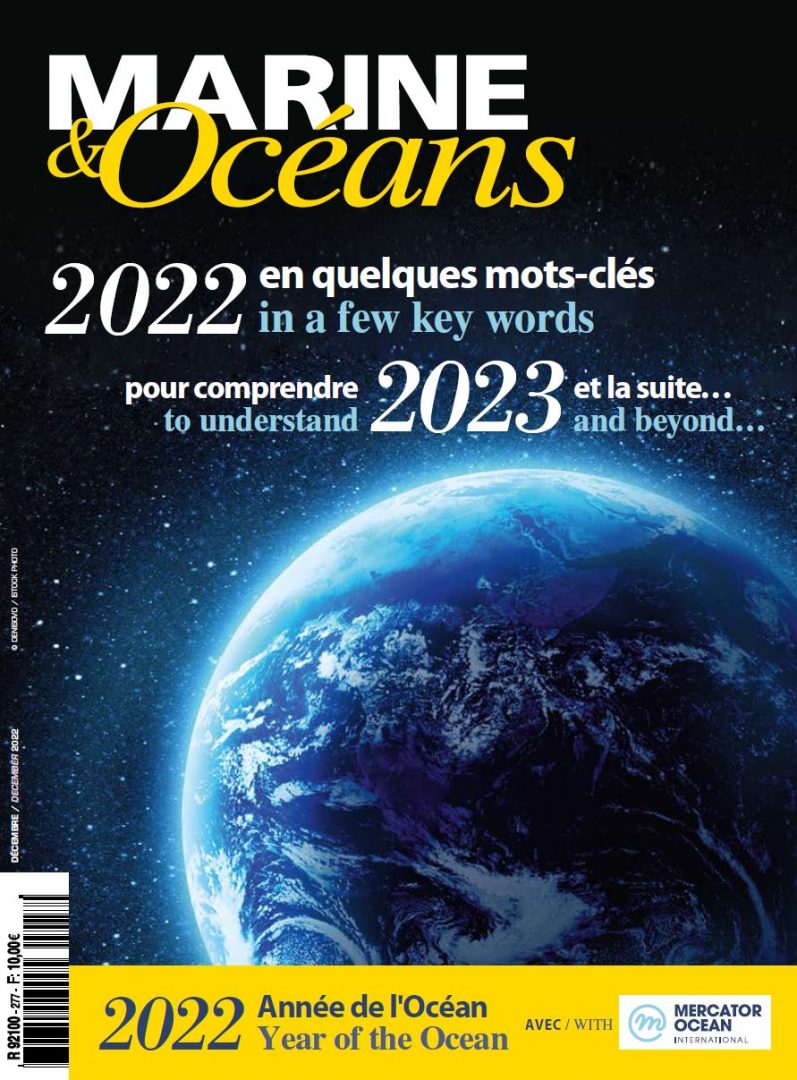“It’s impossible for me to be quiet about the environment”
Interview by Bertrand de Lesquen
* * *
You are identified worldwide as the “swimmer of the Poles”, the one who braved the icy waters of the Arctic and Antarctic. Why this first swim at the North Pole in 2007?
It was the very best place to show the melting of the Arctic ice. 2007 was probably the first time it unfroze at the North Pole. I wanted to go there and make a symbolic swim. I knew that the images we would capture would say an awful lot. You must remember, at that time many world leaders were denying that rapid changes were taking place in the Polar Regions.
What are you defending today as a priority in your fight for the oceans?
It’s to protect at least 30% of the world’s oceans by 2030 (30×30). That’s what we’re focusing on, entirely. Marine Protected Areas make our oceans more resilient to climate change. So we cannot tackle this one without large-scale ocean protection. In 2018, I swam the length of the English Channel to call for this objective. At the end of this swim, then UK Environment Minister Michael Gove was on Dover Beach to welcome me at the finish line. And he told me that he would support our 30×30 campaign. One month later the UK became the first major economy to pledge to this commitment at the United Nations. Now, 75 nations have agreed to it. But 121 still need to be persuaded. At the end of this year we have a big Climate Change Conference, COP26, happening in Glasgow. This is a crucial year. For climate, the science is very, very clear, and we are running out of time.
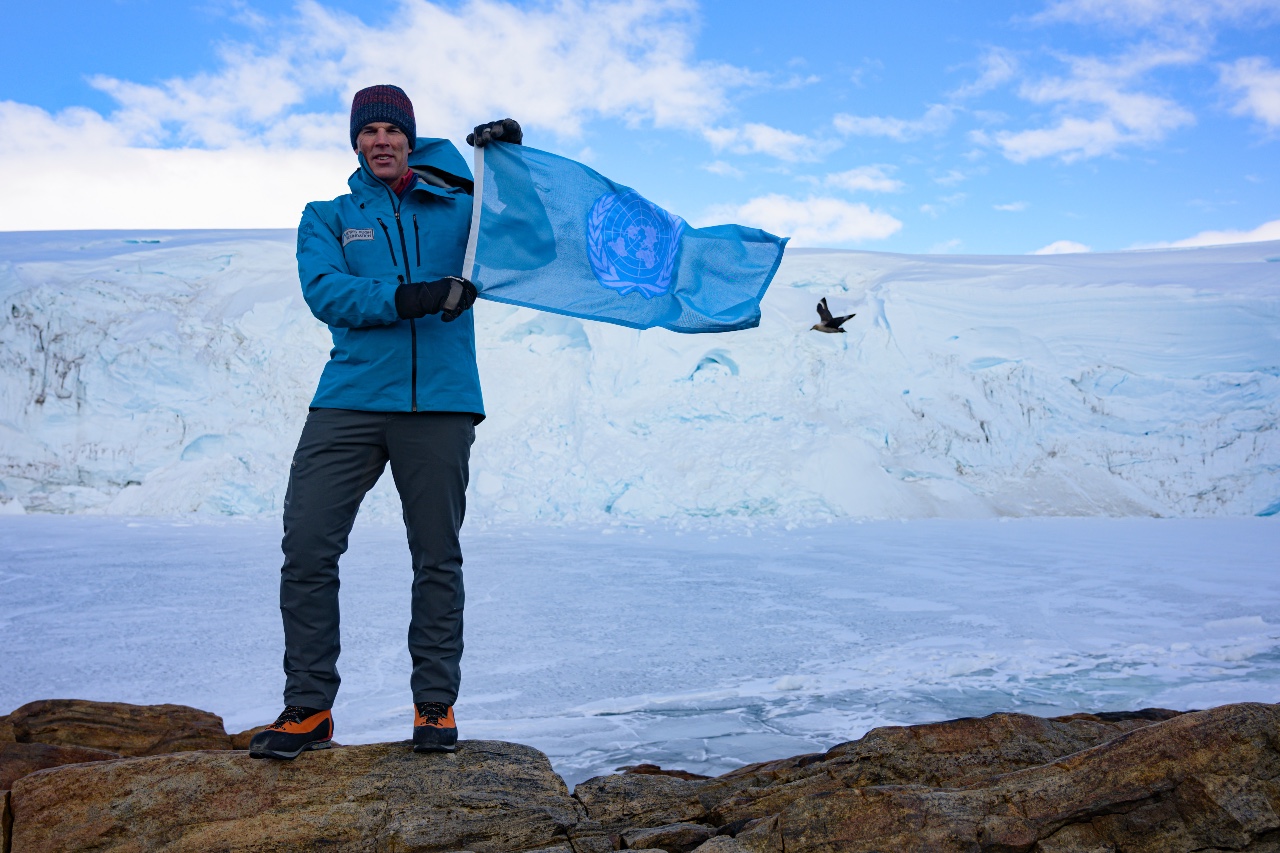
After the North Pole, what were your most symbolic and striking swims?
The Mount Everest in 2010. What happens in the Himalayas will have a very big impact on the wider region, if not the world. Nearly 2 billion people rely on the water which comes off the Himalayan glaciers. So I did a swim in a glacial lake on Mount Everest. Then the Ross Sea in 2015. This led to the creation of the largest protected area in the world, the 1.55 million square kilometer Ross Sea region MPA, the size of Britain, France, Germany, and Italy, put together. Finally, East Antarctica in 2020. I swam in a river, which ran underneath the East Antarctic ice sheet.
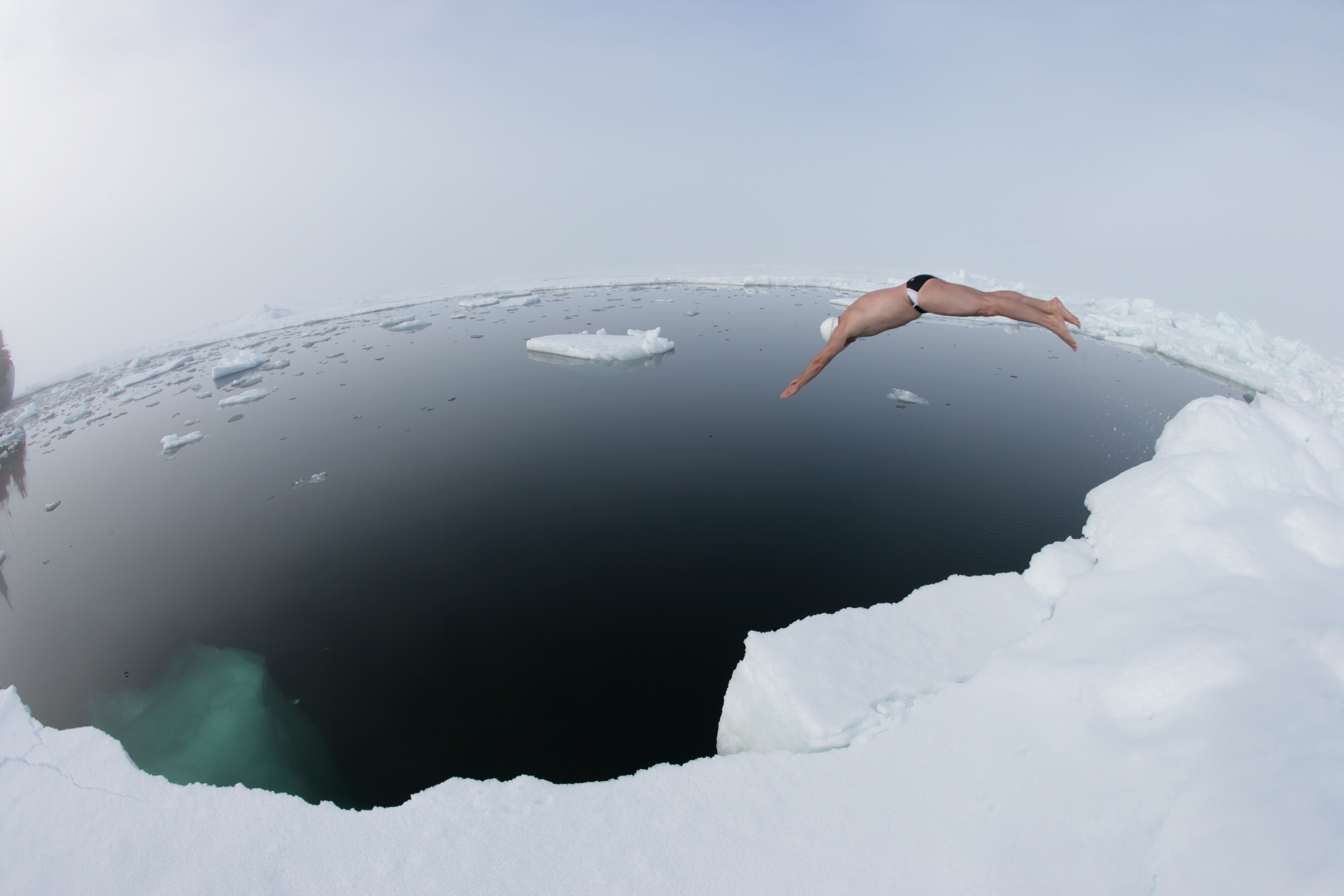
What brought you to swimming and how do you train?
I grew up in Plymouth as a young boy. It is in Devon and is often referred to as the Ocean City. When I was 10 we moved to South Africa, and I went to school right next to a beach. I then served in the Navy, and later became a maritime lawyer. Oceans have always played a central role in my life. Concerning training, it very much depends on the type of swim I am preparing for. I never wanted to race in swimming pools. I wanted to swim around capes, coastlines, across bays and seas, down rivers, across fjords and, of course, in the Polar Regions. The swim along the length of the English Channel, which is 528 kilometers, required extensive long hours of training. The swims I’m doing in the Polar Regions are short swims. They are in such extreme conditions that they require a sprinter’s body and I need to be fast, strong and robust in cold water. I also need to condition myself with long periods of training in the cold so that my body can adapt. With the Covid it has sometimes been difficult but I found ways to keep fit.
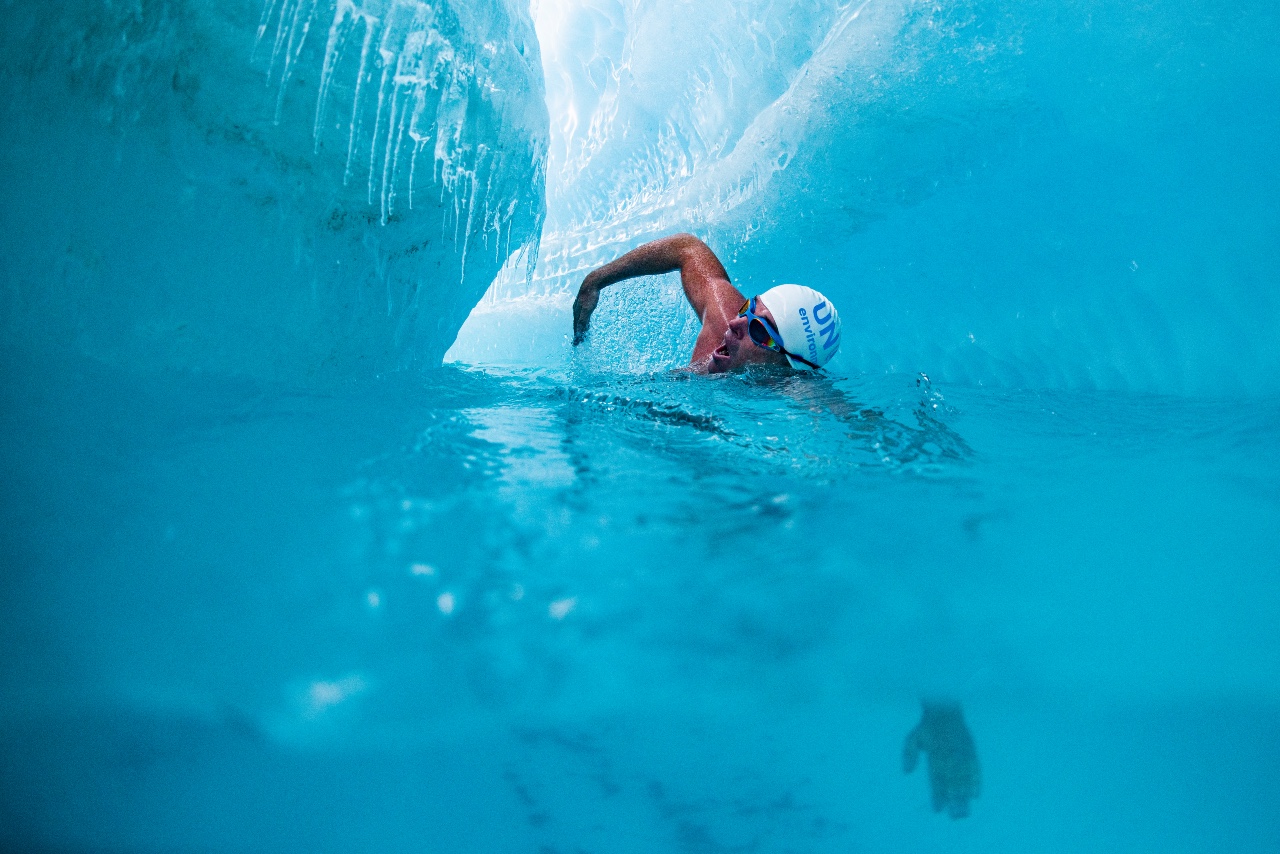
What gives you the strength to commit yourself in such a physical way?
I’ve been swimming now for 35 years. Of that about 15 years have been very focused on being a voice for the oceans. Seven years ago, the United Nations appointed me as the UN Patron of the Oceans. My role is very clear – to be a voice for the oceans and all the magnificent wildlife that lives in them. And now, to put it very bluntly, I won’t do an official swim without a corresponding ocean or environmental message. Every generation will face its issues, and it’s impossible for me to be quiet about the environment. I’ve seen huge changes, which will impact every single one of us, the future generations, and the whole of the animal kingdom. I don’t feel that one can be quiet on the defining issue of our generation.
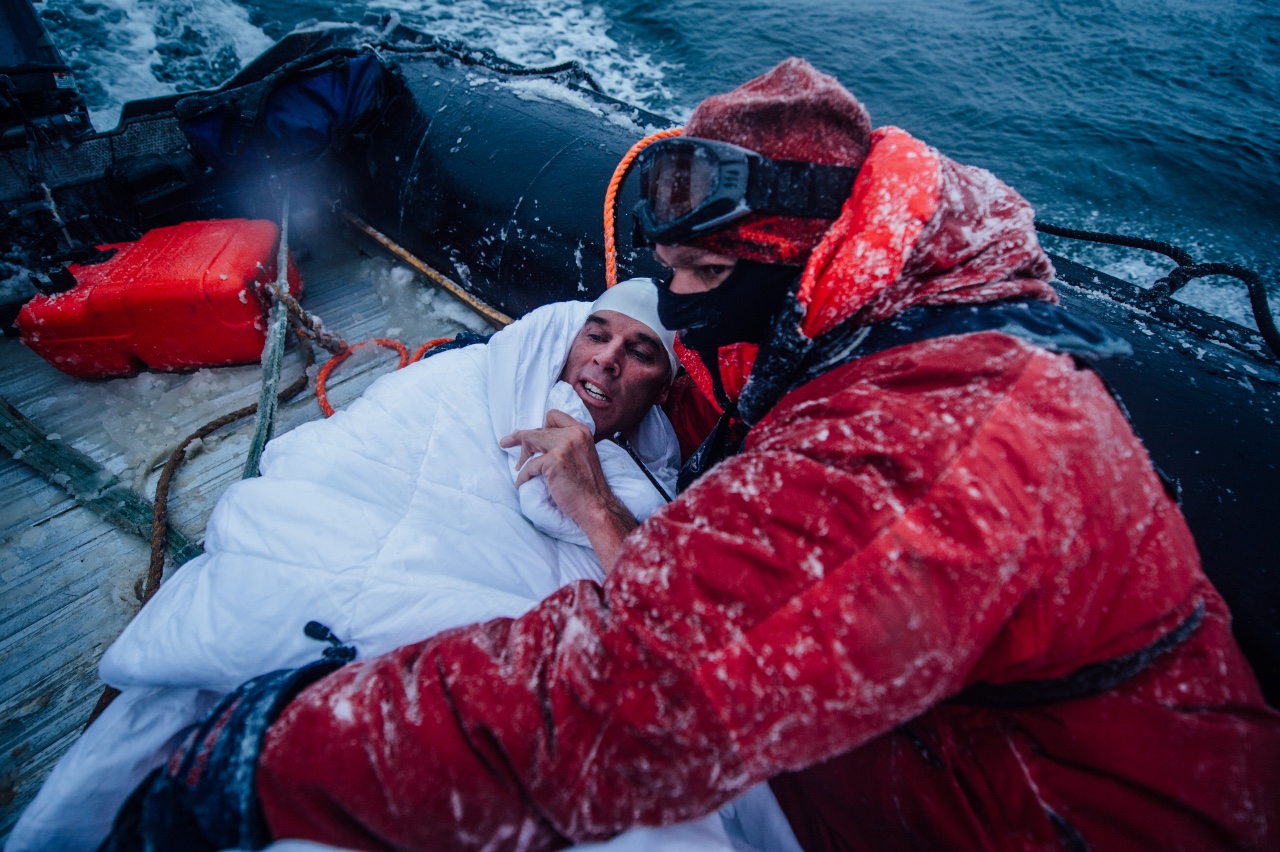
What was the action that made the biggest impression on you?
I think it’s probably the one in favor of the Ross Sea. Initially, an American scientist called David Ainley, urged the nations responsible for protecting Antarctica, to set the area aside as a marine protected area. The negotiations went on for nearly 17 years and lots of big names got involved. Everyone from Leonardo DiCaprio to Pamela Anderson. But none of them had broken through and persuaded the Russian and Chinese governments which were the last two outstanding. So there was a big push in 2015. John Kerry was very involved. For my part, I went down to the Ross Sea, made the swim, and afterwards went to meet members of the Russian government with Slava Fetisov, Russian senator and ice hockey legend. We were able to get the Russians across the line. The day that deal was signed was the happiest day of my life.
These years of commitment have therefore been useful…
Yes, it has been useful. Things have changed but we are just not moving fast enough. The changes, which I see, are profound, and fast paced. The institutions responsible for protecting the environment have not been keeping up with the rapid speed of change.
What is your next challenge?
We have a very big expedition taking place over two weeks in August. I can confidently say that it will be the hardest, toughest and most challenging one of my career.
—–
Credit header picture: Kelvin Trautman. East of the Antarctic, January 2020. In the ice canyon, endurance swimmer and UN patron of the Ocean Lewis Pugh, committed to protecting 30% of the oceans by 2030. Here, in the Antarctic to support the creation of three new marine protected areas off the continent. Photo: Kelvin Trautman.


